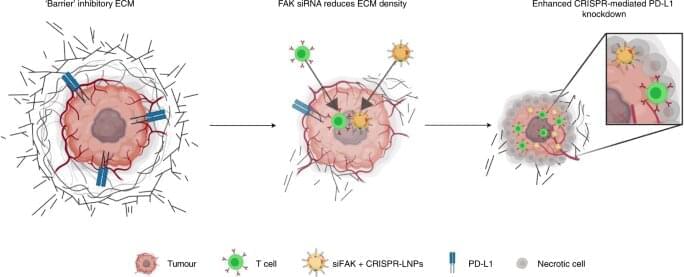As they grow, solid tumors surround themselves with a thick, hard-to-penetrate wall of molecular defenses. Getting drugs past that barricade is notoriously difficult. Now, scientists at UT Southwestern have developed nanoparticles that can break down the physical barriers around tumors to reach cancer cells. Once inside, the nanoparticles release their payload: a gene editing system that alters DNA inside the tumor, blocking its growth and activating the immune system.
The new nanoparticles, described in Nature Nanotechnology, effectively stopped the growth and spread of ovarian and liver tumors in mice. The system offers a new path forward for the use of the gene editing tool known as CRISPR-Cas9 in cancer treatment, said study leader Daniel Siegwart, Ph.D., Associate Professor of Biochemistry at UT Southwestern.
“Although CRISPR offers a new approach for treating cancer, the technology has been severely hindered by the low efficiency of delivering payloads into tumors,” said Dr. Siegwart, a member of the Harold C. Simmons Comprehensive Cancer Center.
